
Success at scale: HubSpot’s Jean-Bernard Baptiste on unlocking business growth through great customer experiences
Jean-Bernard Baptiste is a Senior Manager of Customer Support at HubSpot, a platform built to enable business growth across marketing, sales, and customer service.
This is the sixth in a recurring series of articles looking at how modern support leaders are navigating the support landscape as it continues to evolve. With customer expectations on the rise, we look to find out how support leaders at companies like Slack, Zapier, and Typeform are creating best-in-class experiences to meet those expectations, and what support teams need to be set up for success as the future unfolds.
With a mission to “help millions of organizations to grow better,” as Jean-Bernard puts it, the team at HubSpot is focused on creating great customer experiences for the 100,000 businesses using the platform. “What’s good for our business and the bottom line should really reflect what’s good for our customers,” he says.
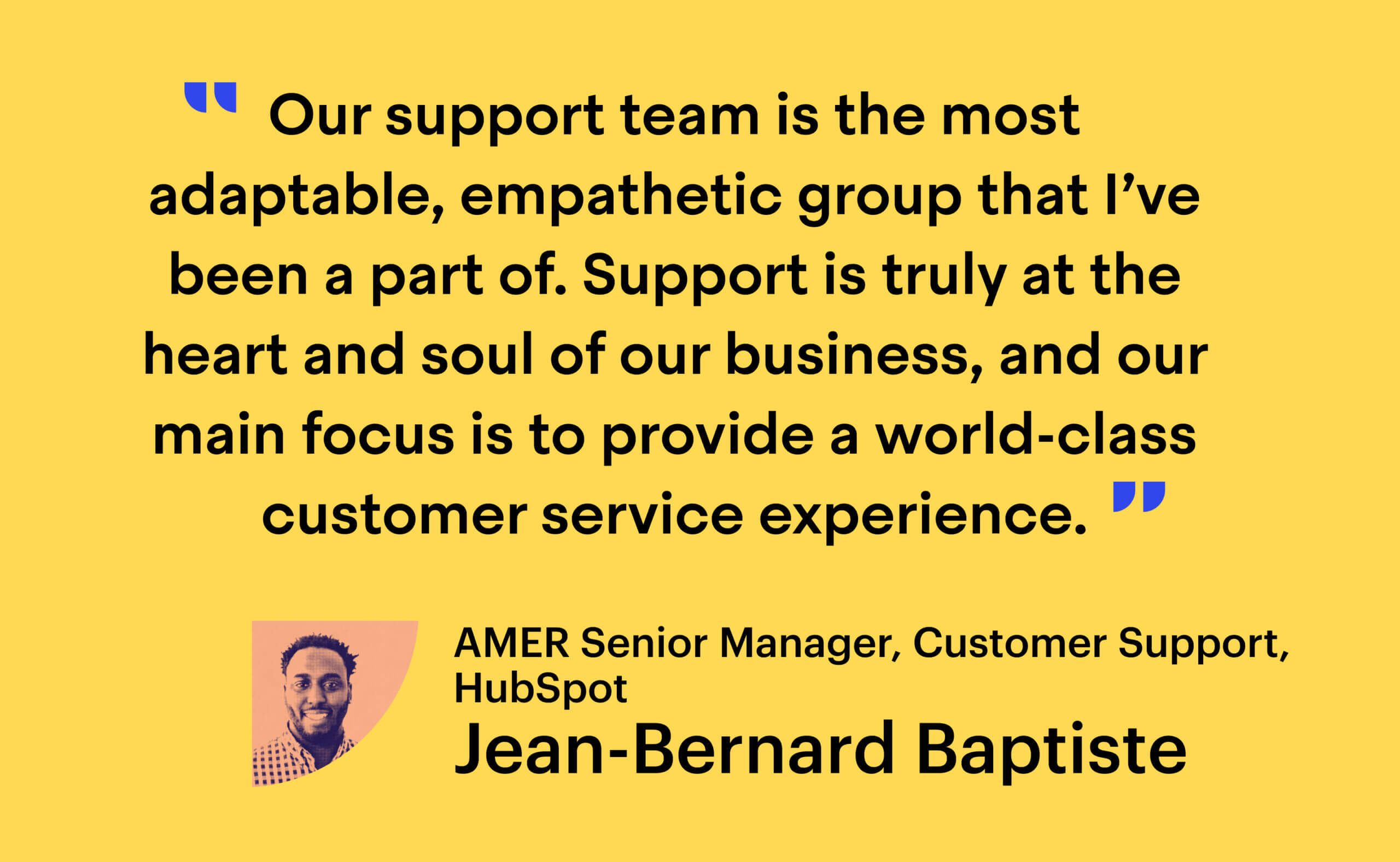
In the support organization, Jean-Bernard is one of the senior managers overseeing HubSpot’s North and Latin American support efforts. The team there totals just over 300, comprised of both customer support managers and frontline specialists. Speaking to the importance of customer support within HubSpot, Jean-Bernard explains, “Our support team is the most adaptable, empathetic group that I’ve been a part of. Support is truly at the heart and soul of our business, and our main focus is to provide a world-class customer service experience.”
Creating value with proactive support
Here at Intercom, we view customer support through the lens of the Conversational Support Funnel, offering proactive support to get ahead of known issues, empowering customers to self-serve with automated support, and ensuring support teams are set up to provide human support that’s both personal and efficient. These approaches are shared by the team at HubSpot; they offer a combination of proactive, self-serve, and human support to create the most value for their customers.
“We want to help our customers and drive the most value for them, which means proactively recognizing roadblocks and empowering the customer to be successful”
One of the primary benefits of proactive support is that it enables teams to get ahead of known issues before they occur and offer help before it’s needed. In an effort to get ahead of any potential roadblocks and set customers up for success, Jean-Bernard explains that the team approaches their support proactively wherever they can, saying, “We want to help our customers and drive the most value for them, which means proactively recognizing roadblocks and empowering them to be successful.”
Empowering customers to self-serve
As part of their commitment to ensuring customers have the opportunity to self-serve help and find answers to their questions, HubSpot has a dedicated self-service team that focuses entirely on being the link between the customer and the product organization.
Through close collaboration, these teams are able to drive down customer pain and friction within the product and create better user experiences. Jean-Bernard explains, “Our self-service group is made up of our knowledge, community, and tooling teams that we currently have set up today, and we’re constantly working in the background on finding more opportunities to scale.”
Putting philosophy into action
For Jean-Bernard’s team, maximizing the value their customers get from their product is a top priority. Placing the customer at the center of their support underpins their philosophy and team values.
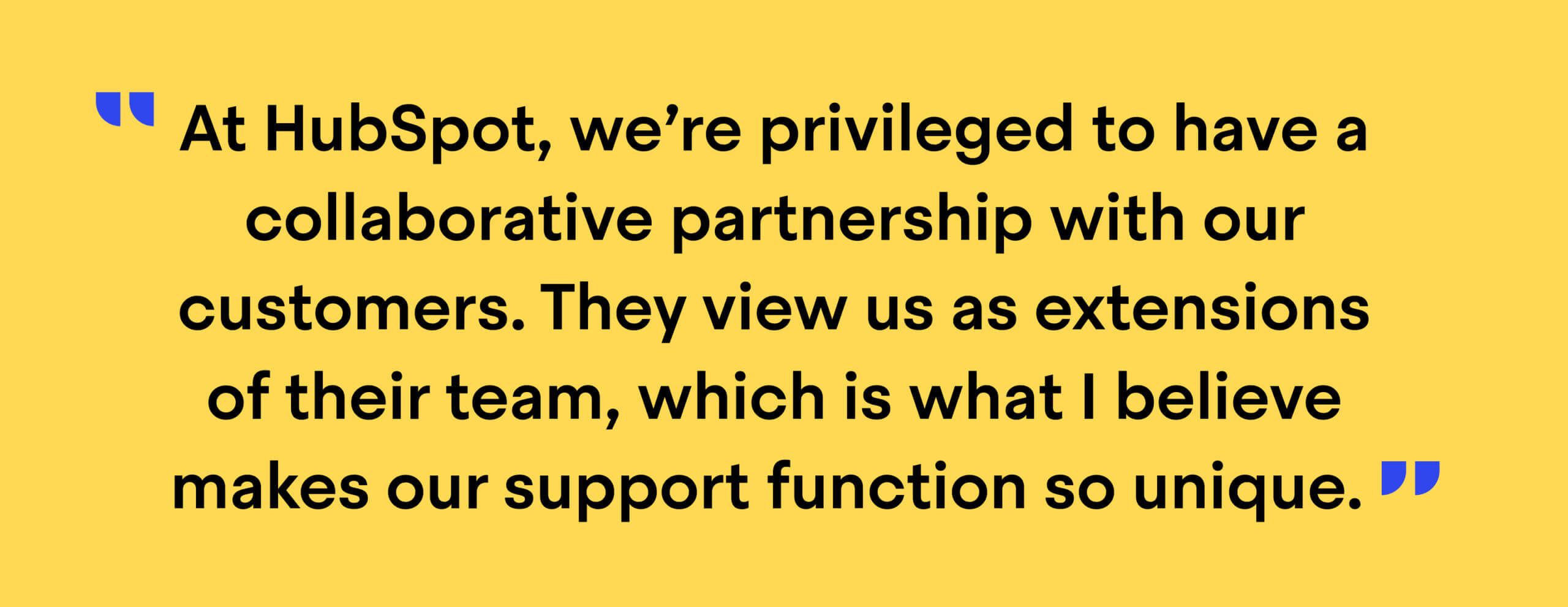
Speaking to the close relationships the team has with their customers, Jean-Bernard explains, “At HubSpot, we’re privileged to have a collaborative partnership with our customers. They view us as extensions of their team, which is what I believe makes our support function so unique.” This close partnership is also reflected in the team’s values. “The customer is at the heart of everything we do and every decision we make,” he says, “We always start with the customer first. We champion inclusivity, commit to consistently learning, approach things with a growth mindset, and focus on being transparent.”
Keeping a pulse on customer expectations
Pointing once again to their focus on customers’ experience and expectations, Jean-Bernard explains that tracking how their customers are feeling is a key component of their support. The team runs experiments to find optimal solutions for their customers, analyzing the resulting data to ensure they’re meeting their needs.
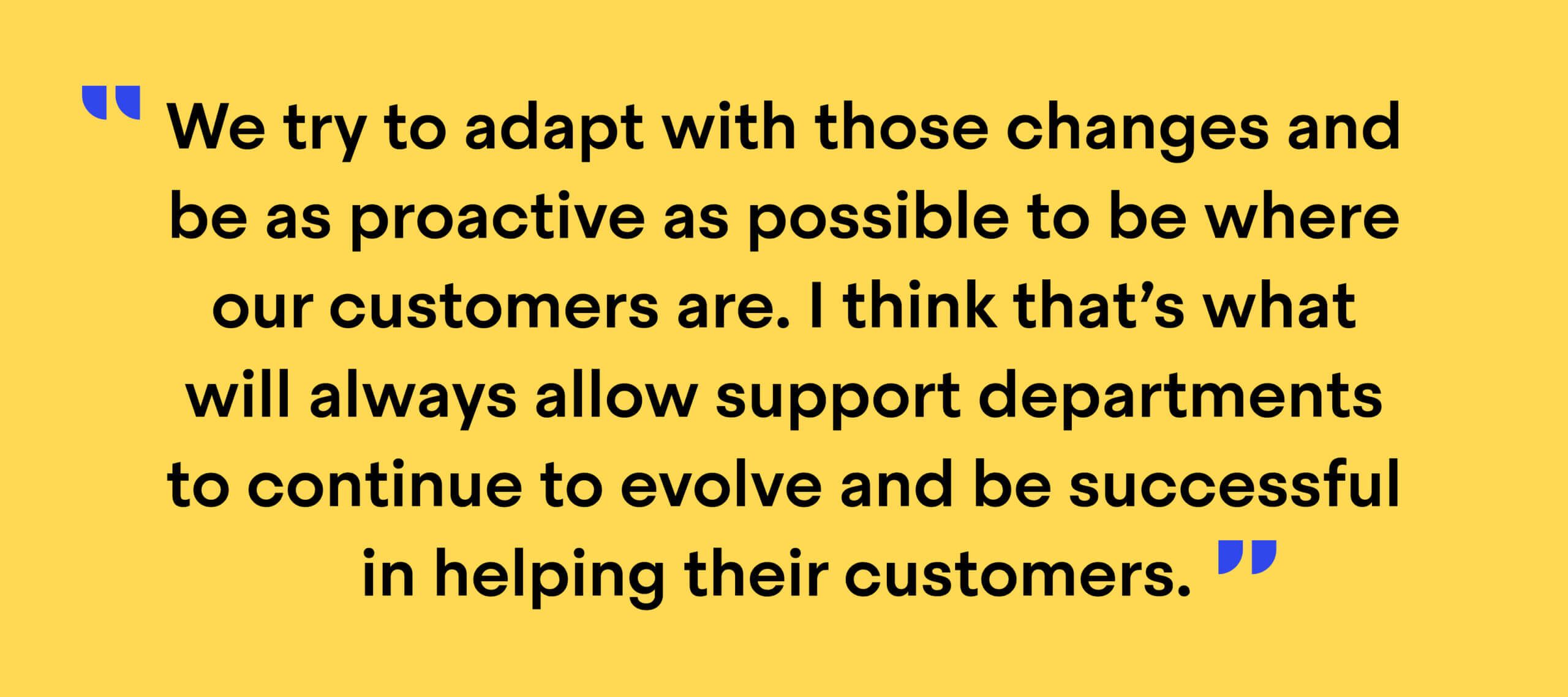
Speaking to the impact of this, Jean-Bernard says, “We found that there was an important need to support our customers via chat, which is why we doubled down and invested heavily in being there. We try to adapt with any changes and be as proactive as possible to be where our customers are. I think that’s what will always allow support departments to continue to evolve and be successful in helping their customers.”
Meeting customers where they are
HubSpot offers omnichannel support to its customers, spanning across live chat, social media, email, and phone support. Having noticed a shift in customer expectations over the last number of years, Jean-Bernard speaks to the sharp rise in popularity of live chat as customers’ preferred channel – and the predicted demise of another.
“Email tickets will soon be going away, I’m sure, as people start to lean more and more into chat”
“Email tickets will soon be going away, I’m sure, as people start to lean more and more into chat.” In the last number of years, HubSpot has invested heavily in developing their live chat support channel, shifting their focus to adapt to customer preferences and meet them where they are. Having previously used external software to provide chat support, the team went all in on chat and built out their own product to enable them to support their customers across their preferred channels. “We always try to leverage and use our own products, which we are doing for support today. Not only is that going to help us best support our customers, we’re our biggest customer, so we can provide feedback to the product team to help improve it to better serve our customers,” Jean-Bernard says.
Considerations when choosing a support tool
Building a support tech stack is an important decision for any business. When choosing support tools at HubSpot, the team takes a number of considerations into account:
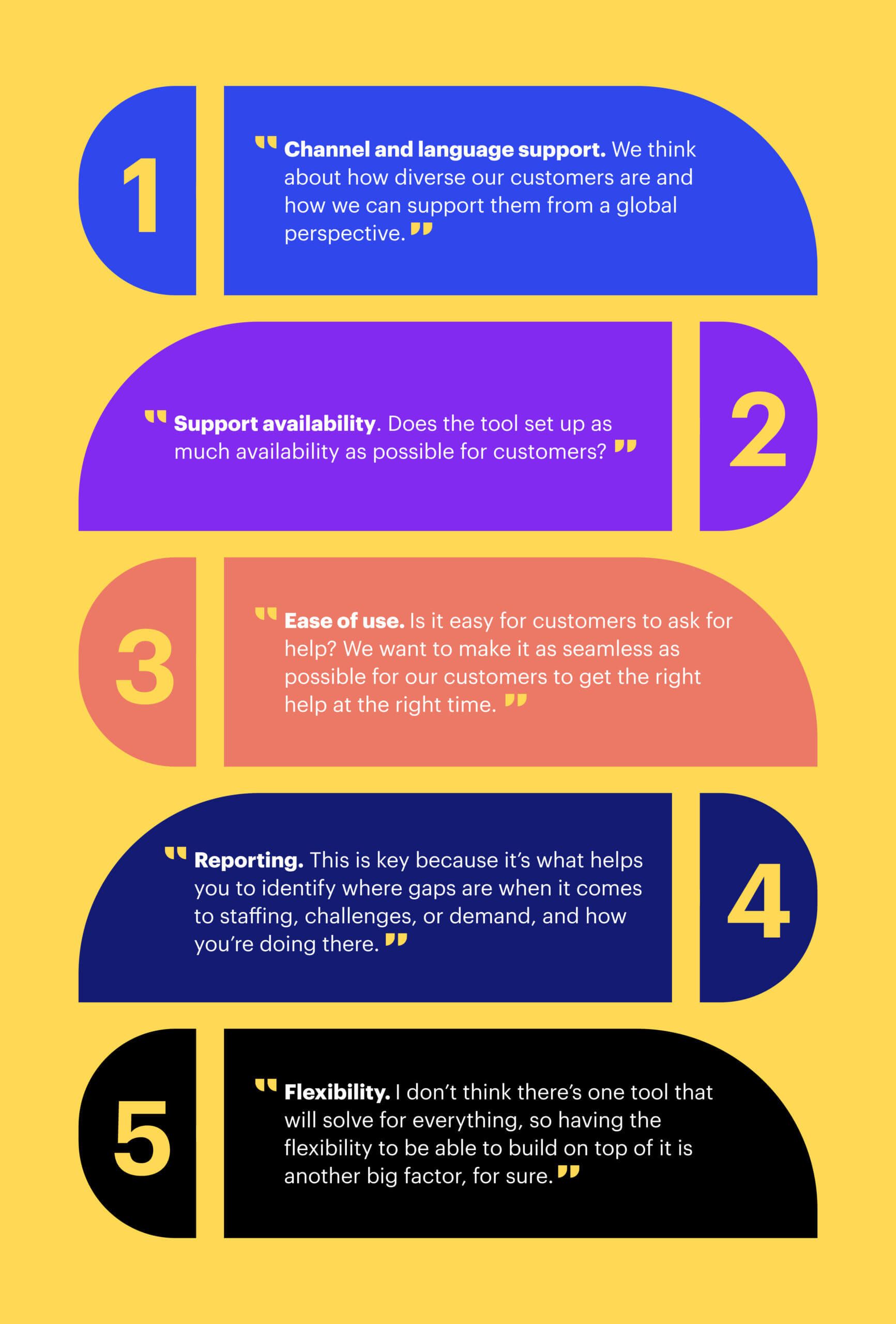
Striking a balance between humans and technology
Bots and automation play an important role in support, empowering your team to offer a fast, personal support experience for your customers. Speaking to the role technology has in the support organization at HubSpot, Jean-Bernard points to the importance of finding a good balance that works for both your team and your customers.
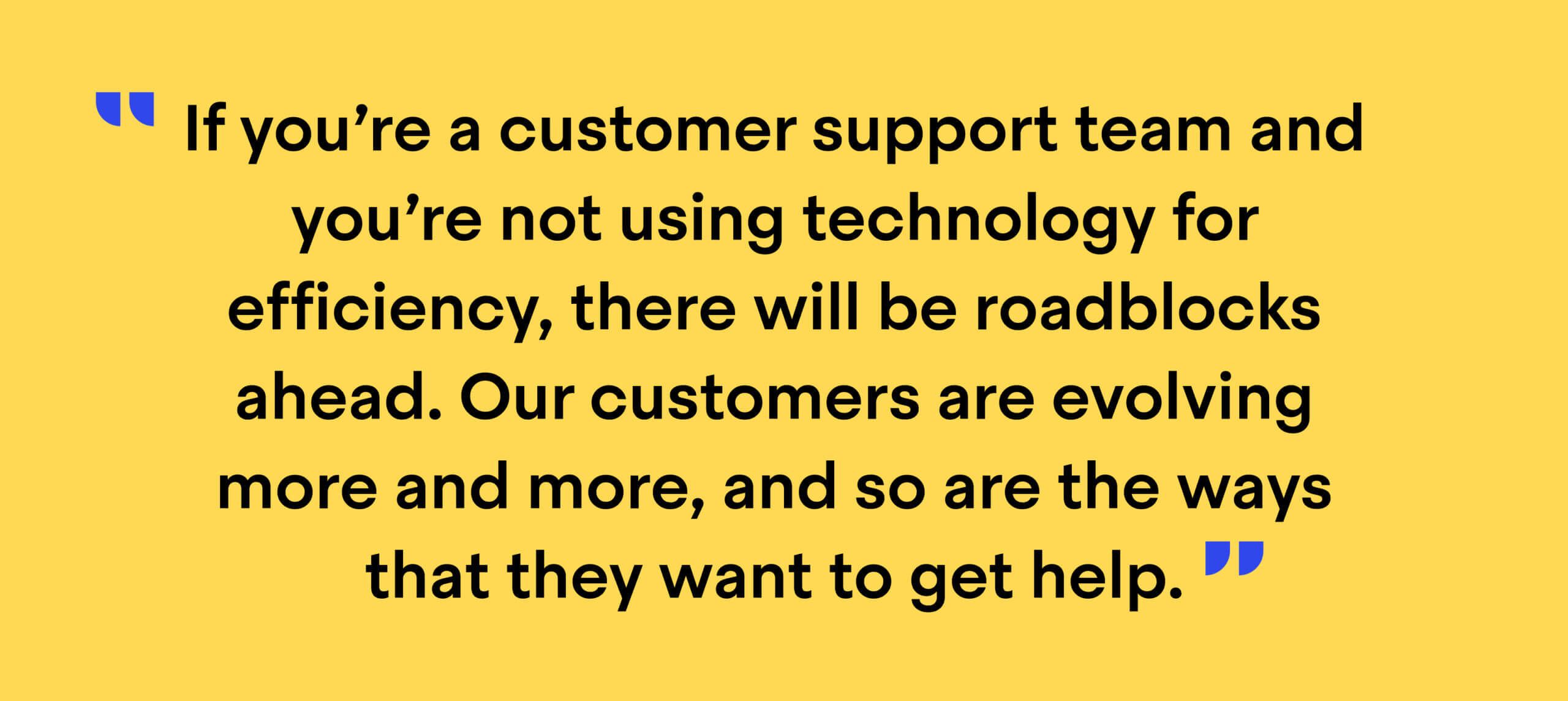
“If you’re a customer support team and you’re not using technology for efficiency, there will be roadblocks ahead. Our customers are evolving more and more, and so are the ways that they want to get help,” he says, “Instead of just throwing headcount at every problem you encounter, technology can actually help to fill those gaps through AI or bots.”
“When it comes to technology and humans in support, they go hand-in-hand. I think that humans should be focused on high-value work and leveraging technology to remove the friction”
Where humans play a vital role in support, Jean-Bernard explains, is when customers need help with complex or sensitive issues, leaning on technology to free them up to focus on what really matters – the customer. “When it comes to technology and humans in support, they go hand-in-hand. I think that humans should be focused on high-value work and leveraging technology to remove the friction.”
Creating a great customer experience
With customer expectations on the rise, Jean-Bernard explains that there are a lot of factors shaping how businesses can adapt to meet them.
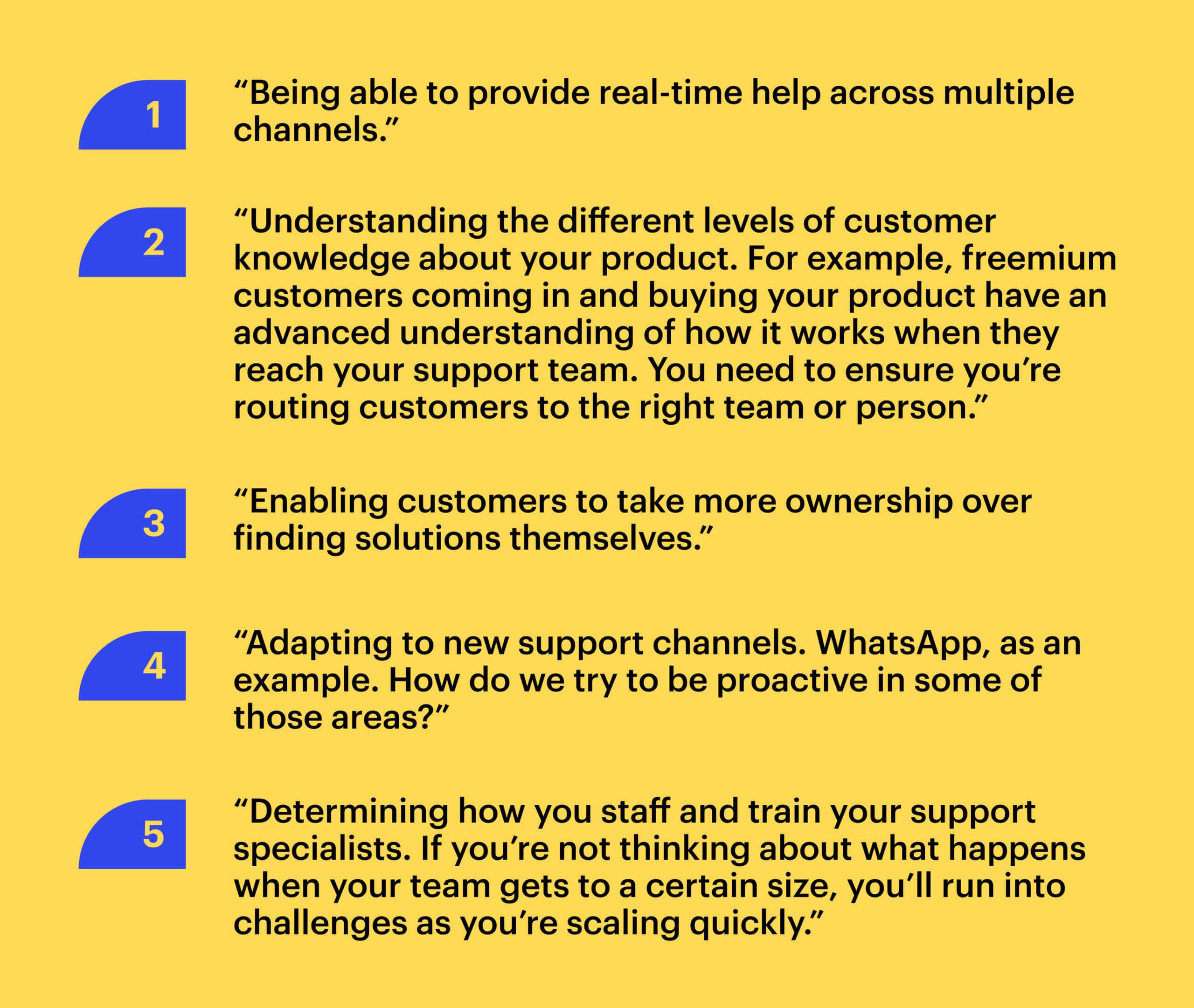
“All in all, thinking about a seamless support experience is key. I think that other businesses looking to evolve their support need to continue to focus on education with your customers and adapting to meet them where they are,” he says.
The future of support
Reminiscing on how significantly the support landscape has changed since Jean-Bernard first joined HubSpot seven years ago, he notes, “I started my career as a frontline specialist at HubSpot and have certainly seen a shift and change since then. What we’re seeing today is more investment into customer support, as well as more recognition and exposure. People are increasingly starting to see how important the customer experience is, especially when you think about retention. The quality of someone’s support experience with your company is a big contributing factor to whether they’ll remain a customer.”
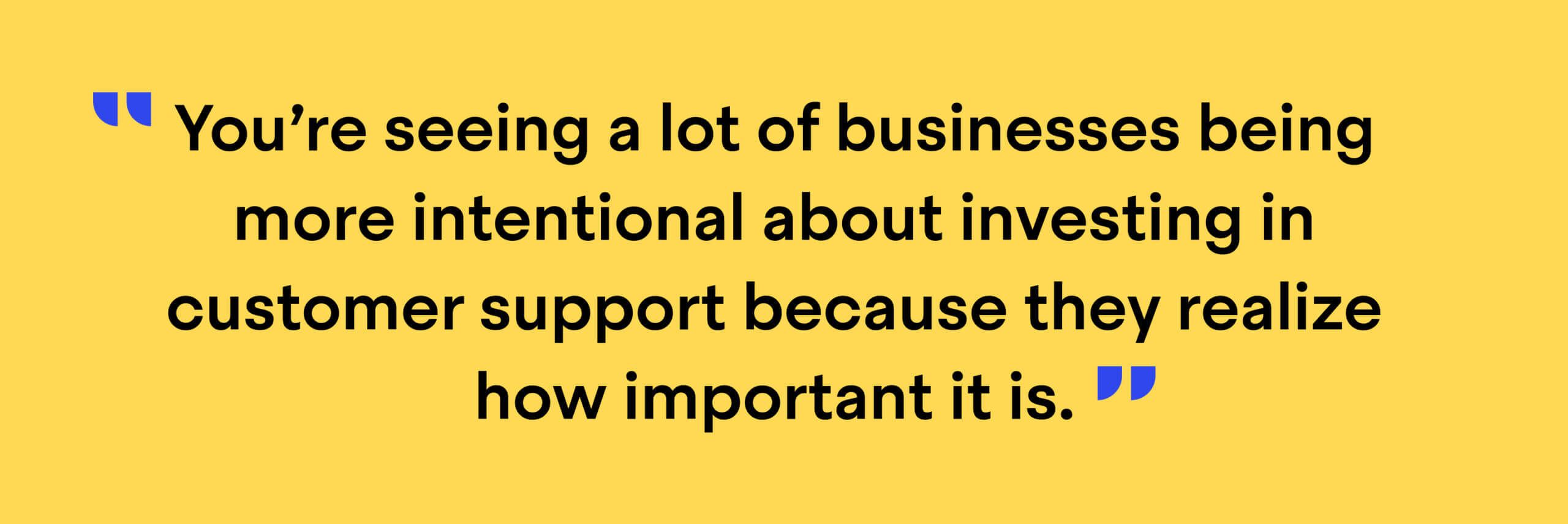
And this isn’t only true for HubSpot. The customer support industry has experienced massive, irreversible change in recent years, with customer centricity no longer being a “nice-to-have”. Jean-Bernard explains, “You’re seeing a lot of businesses being more intentional about investing in customer support because they realize how important it is. When it comes to word of mouth, reading reviews, and interacting with the business, I think that experience is so critical.”
Hailing back to the team’s focus on customer experience, Jean-Bernard points to the success of their customers as being the root of HubSpot’s business. “I’m very grateful to have been at HubSpot over these past seven years and to see the evolving focus that we have on our customers. It’s still at our epicenter, and we’re continuously trying to work and meet them where they are to continue to help us grow.”








